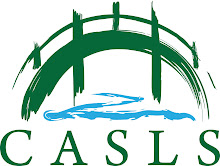From http://blogs.edweek.org/edweek/learning-the-language/2012/07/study_bilingual_ed_a_boon_to_n.html
Study: Bilingual Ed. Better for Non-ELLs
By Lesli A. Maxwell
July 2, 2012
There's a robust body of research that has examined how the various forms of English-language instruction impact the ability of ELLs to acquire English and achieve academically, but a group of researchers is taking a completely different look at this question.
How, they ask, do bilingual education programs—in which some instruction is delivered in an ELL's native language—spill over to impact the performance of students who are not learning English?
The researchers use Texas—home to the second largest concentration of ELLs in the nation and where Spanish bilingual education programs still exist in public schools across the state—to try and answer this question. Their findings were released in a working paper today from the National Bureau of Economic Research.
In districts offering bilingual education, the test scores of non-ELLs whose home language is not Spanish were raised "significantly." Because these kids were not Spanish speakers, they never would have been candidates to participate in bilingual education, therefore, researchers conclude, there were "program spillover effects."
The researchers offer some possible explanations, many of which can be boiled down to differences between the composition of classrooms in bilingual programs versus those in ESL programs.
Read the full article at http://blogs.edweek.org/edweek/learning-the-language/2012/07/study_bilingual_ed_a_boon_to_n.html
The report is available for $5 at http://papers.nber.org/papers/w18197
July 7, 2012
Subscribe to:
Post Comments (Atom)





No comments:
Post a Comment
Note: Only a member of this blog may post a comment.